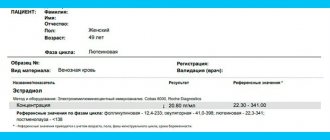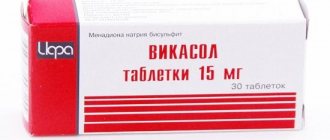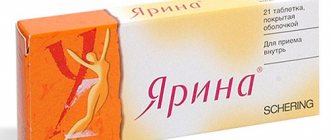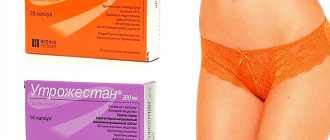The human body is a complex structure. For its full functioning, nutrients, minerals, salts, amino acids and, of course, vitamins are required. For the normal functioning of the reproductive system and to normalize the menstrual cycle, vitamins of group E are necessary first of all.
The role of vitamin E for the female body
The effect of vitamin E on menstruation is known to many women. It is prescribed for cycle disorders that are accompanied by long delays. Tocopherol is one of the most important elements in maintaining women's health:
- neutralizes the effects of free radicals;
- helps boost immunity;
- participates in the processes of antibody production;
- reduces blood clotting;
- strengthens the walls of blood vessels;
- enhances capillary microcirculation of blood;
- regulates the level of hormones of the pituitary gland and hypothalamus;
- enhances nutrition of dominant follicles, ensuring greater egg viability;
- prevents the formation of scars and scars.
The use of vitamin E in gynecology allows you to normalize the menstrual cycle, increase the level of progesterone and estrogen, necessary for successful conception.
The effect of vitamins on a woman’s body
A lack or excess of vitamins and microelements clearly affects the functioning of the female reproductive system. Knowing this and prescribing certain complexes, you can improve the menstrual cycle.
Vitamin E
Belongs to the group of fat-soluble and plays an important role in the formation of sex hormones. Vitamin E affects the production of progesterone, which ensures the second phase of the menstrual cycle and supports pregnancy. That is why it is prescribed for the threat of miscarriage, as well as for the treatment of mastopathy. The average course dose is 200 mg twice a day.
It is known that the lack of the second phase of the menstrual cycle leads to various hyperplastic processes in the uterine cavity, which leads to irregular and heavy periods. By taking vitamin E, the menstrual cycle will improve and the signs of mastopathy will decrease.
Regular use of vitamin E leads to a decrease in the severity of premenstrual syndrome - irritability, swelling, weakness and lethargy, engorgement of the mammary glands, cravings for sweets, etc.
Vitamin E is also important for the growth and development of the fetus. Its deficiency increases the risk of developing hemolytic jaundice in newborns, atrophic changes in liver tissue and other adverse effects, including intrauterine death.
Vitamin E content in foods
Vitamin A
Under its influence, regular renewal of the mucous membranes, including the genital organs, occurs. It is also involved in the synthesis of progesterone.
Under the influence of vitamin A, the effect of sex hormones in the body is enhanced. It is also necessary for normal growth and development of the mammary glands.
Thus, vitamin A, in addition to its main antioxidant function, is involved in the metabolism of sex hormones. Its deficiency leads to a decrease in libido, disruption of the menstrual cycle and ovulation processes, and also contributes to the development of mastopathy.
Vitamin A content in foods
Vitamin D
This vitamin has a greater effect on calcium metabolism, bone density and structure. It also indirectly affects blood clotting abilities.
When it decreases in the body, the symptoms of premenstrual syndrome are more pronounced, and the duration of critical days increases.
Folic acid
Folic acid takes part in the development of the nervous system in the fetus, affects the immune system and the condition of the intestinal epithelium. It is extremely necessary for all tissues that are quickly renewed, and these are all the mucous membranes of the genital tract, gastrointestinal tract, skin, etc. The inner layer of the uterus also falls here, so folic acid deficiency provokes various hyperplastic processes of the endometrium, and hence menstrual irregularities.
Vitamin C
Ascorbic acid is the most powerful antioxidant in the body. It helps to neutralize all harmful waste products, such as free radicals, which can damage cellular material.
Vitamin C helps the body fight stress and promotes adaptation to new conditions. Its need increases during periods of illness and strong psycho-emotional experiences. Insufficient consumption at these moments leads to greater activation of the sympatho-adrenal system, which can lead to cycle failures.
It also affects the strength and stability of the vascular wall. Increased bleeding, a tendency to hematomas and increased menstrual flow occurs with hypovitaminosis.
Vitamin C content in foods
B vitamins
Necessary for the normal development and functioning of nervous tissue and the transmission of impulses along fibers.
A lack of vitamin B12 causes the development of megaloblastic anemia, often affecting girls with signs of gastritis.
B6 is involved in the regulation of the thyroid gland and ovaries. And their dysfunctions lead to menstrual irregularities.
The needs for this group of vitamins are increased in women during their formation
menopause
.
Indications for use
Vitamin E affects not only menstruation, but also the entire reproductive system. It is used for hormone imbalance, PCOS (polycystic ovary syndrome), to restore the functioning of the mammary glands and when planning a future pregnancy. It restores hormonal levels, improves blood supply to ovarian tissue, and improves the quality of eggs. According to reviews, vitamin E is successfully used to regulate menstruation, reduce their pain and regulate their onset.
Menstrual irregularities
The use of vitamin E in the second phase of the cycle causes menstruation on time. Tocopherol improves the nutrition of the endometrium, which promotes its normal growth and prevents the occurrence of the most common menstruation disorders:
- dysmenorrhea - painful menstruation with normal development of the reproductive organs;
- algodismenorrhea - pain during menstruation, caused by the presence of inflammatory processes, infantility of the uterus, endometriosis;
- amenorrhea - absence of menstrual bleeding;
- Oligomenorrhea is a cycle disorder in which its duration is more than 35 days.
Tocopherol stimulates the production of estrogen and progesterone in the second phase, which promotes normal endometrial growth and the timely onset of menstruation. But consuming large doses of the vitamin in the first phase can cause a delay in ovulation, which will lead to a prolongation of the cycle.
Solgar, Vitamin E, 400 IU, 100 Softgels
★★★★★
1 026 ₽
Buy at a discount
Planning a pregnancy
When planning a future pregnancy, vitamin E is prescribed to be taken in the second phase of the cycle. It is during this period that the active formation of the endometrium occurs, which is necessary for successful implantation of the egg. Tocopherol helps increase the viability of germ cells, so it can be used by both women and men.
The role of vitamin E in planning pregnancy is described in the video:
Restoration of breast functions
Vitamin E can also be used to restore the functioning of the mammary glands. It maintains skin tone, preventing the appearance of stretch marks and sagging breasts, reduces the intensity of tissue aging processes, stimulates the activity of the glands, their growth and milk production.
During breastfeeding, tocopherol is prescribed to maintain milk secretion. It has a positive effect on gland tissue, increases prolactin levels, and also improves the taste of milk.
After the birth of a child, the female body experiences a deficiency of many nutrients. Extensive blood loss, changes in diet, and constant stress lead to severe hypovitaminosis. To prevent E deficiency, women are prescribed to take the vitamin. This helps you recover faster and return to your previous shape. It enhances regeneration processes and maintains the condition of the mucous membranes, which allows for more efficient recovery.
Climax
During menopause, a woman's body experiences incredible hormonal changes. The decline of reproductive function is accompanied by a change in well-being and a deterioration in the emotional state. Therefore, during menopause, taking vitamins is especially important. Tocopherol in this case acts extensively:
- reduces dry skin and hair;
- normalizes hormonal levels;
- reduces the intensity and frequency of hot flashes;
- maintains calcium levels in bones.
Vitamin E during menopause helps reduce the intensity of hormonal fluctuations. It supports the synthesis of female sex hormones, thereby reducing the unpleasant symptoms of decline in the functions of the reproductive system.
Reasons for delays and failures
Today, many women have at least occasional irregularities in the menstrual cycle, and this will not surprise anyone. There are many reasons. The most common are the following:
| Cause | Why is this happening |
| Endometriosis | The frequency of this pathology is steadily increasing every day. Its cause and the mechanism of development are not fully understood, therefore there is no radical treatment. Endometriosis can be localized in any part of the reproductive system and even beyond. In addition to pain, constant spotting before and after menstruation, a woman may be bothered by various cycle disruptions. |
| Imbalance of sex hormones | It can be either hereditary or acquired. There is either an excess of female or male sex hormones. In the first case, heavy and prolonged menstruation with long breaks is characteristic. With hyperandrogenemia, the cycle can be shortened or lengthened, and the amount of discharge is often scanty. |
| Polycystic syndrome | As a result of disruption of the formation of sex hormones, not only disruptions of the menstrual cycle occur, but the ovaries themselves acquire a dense tunica albuginea, which closes the pathological circle. PCOS can manifest as minor cycle disruptions or absence of menstruation for up to six months or more. |
| Other hormonal causes | Disruption of the hypothalamic-pituitary-adrenal-ovarian system, no matter at what level, also leads to menstrual irregularities. This may be hyperprolactinemia or insufficient production of gonadotropic hormones. |
| Ovarian cyst | Ovarian cysts also lead to an imbalance of sex hormones, mostly causing delayed menstruation. |
| Pathology of the thyroid gland | Both hypo- and hyperfunction affect the functioning of the ovaries, disrupting the production of sex hormones. |
| Excess weight is a source of estrogen | This is why women with extra pounds often suffer from all kinds of bleeding, endometrial hyperplasia and uterine fibroids. And changes in the menstrual cycle occur according to the type of functional delays. |
| Psycho-emotional experiences | A woman’s genital organs, ovary and brain structures are more sensitive to all kinds of experiences and stress than they might actually think. This leads to a breakdown of all existing relationships. The result is menstrual irregularities. |
| Climate change, stress | Climate change, like stress, affects menstruation and ovulation. Especially if these are sudden moves - “from cold to warm,” for example. |
| Excessive physical activity | Excessive physical activity leads to constant fluctuations in body weight. Also, some women are addicted to steroid hormones. This all affects the function of the ovaries. |
Watch the video about the causes of menstrual irregularities:
Contraindications for use
The use of vitamin E to induce menstruation is contraindicated in the following cases:
- hemophilia;
- recent myocardial infarction;
- cardiosclerosis;
- thyrotoxicosis.
special instructions
If blood clotting is reduced, the dosage of the vitamin is selected individually, since a large dosage of tocopherol can lead to extensive bleeding. In case of individual intolerance, it can be prescribed in other forms of release and lower dosages. If a person is already taking multivitamin complexes, you should refrain from using additional E - the vitamin can accumulate in the body and can cause an overdose.
It is not recommended to use simultaneously with iron supplements. This element negatively affects the digestibility of E, which may cause a decrease in the effectiveness of the product. Therefore, if you have diseases that require taking iron supplements, it is appropriate to inform your doctor about this.
The effect of tocopherol on menstruation
Doctors often prescribe vitamin E for late menstruation, as it has minimal contraindications. First you need to exclude pregnancy.
The delay can occur for various reasons:
- infectious and inflammatory diseases of the reproductive system;
- disruption of hormone production;
- poor nutrition and diets that lead to a lack of vitamins, minerals, and microelements;
- weak immunity.
To understand why vitamin E is used for menstruation, you need to know how the cycle occurs.
It is divided into 2 phases:
- Follicular phase. During this period, the hormone estrogen is intensively produced, and the egg matures. The phase lasts from day 1 of the menstrual cycle until ovulation.
- The luteal phase lasts from the day of ovulation until the first day of the next cycle, that is, until the start of menstruation. It is characterized by the production of progesterone, a sex hormone that helps thicken the uterine tissue to prepare the body for pregnancy. If pregnancy does not occur, the entire endometrium comes out during menstruation. If there is little of it and there is no pregnancy, then a delay occurs.
Vitamin E helps increase progesterone, due to which the endometrium grows normally in the second phase of the cycle and menstruation is restored. Vitamin E also helps strengthen tissues and allow a fertilized egg to attach to them. If there is still a delay in menstruation after vitamin E, pregnancy may have occurred due to the normalization of hormonal levels and the functionality of the female reproductive system.
It is important to remember that Vitamin E helps improve many processes in the body, but it cannot get rid of any global problems or pathologies. To clarify the reason for the delay in menstruation, you need to visit a gynecologist , since a serious illness may develop that will require a course of treatment or surgery.
Bargain
You can buy tocopherol both in a regular pharmacy and in online stores.
We recommend ordering vitamin E from iHerb.com. This well-known online store offers a wide selection of quality products, prices 30-50% lower than pharmacy prices, many customer reviews and fast delivery worldwide.
Buy vitamin E at
Get up to 10% discount using our promo code:
AGK4375
Activate
The promotional code is activated in the cart after adding the 1st product and is valid only for the 1st order.
Reception scheme
Vitamin E can be taken during menstruation, but for this you need to follow the necessary dosages and recommendations for use. The amount of this vitamin is calculated individually in cases where a woman experiences hormonal imbalances and changes in the menstrual cycle. In gynecology, the duration of therapy can range from 30 to 90 days, depending on the woman’s condition.
It is better to drink the vitamin in the first half of the day, during meals. If you drink the product on an empty stomach, the substance will be absorbed worse. It dissolves with fats, so using vegetable oil or natural fats in foods will help you get more benefits from taking it.
Recommended Dosages
In the first phase (days 1-15 of the cycle), you need to take the substance 100 mg per day. In this phase of the cycle, E affects the nutrition of the egg and improves the quality of the dominant follicle. Exceeding dosages during this period is dangerous due to a shift in the timing of ovulation, which can cause an increase in the duration of the cycle.
In the second phase (days 15-28 of the cycle), the daily dosage is increased to 300 mg. During this period, tocopherol causes active growth of the endometrium and an increase in progesterone levels, which contributes to successful conception. In gynecological practice, this treatment regimen is used for cycle disorders and PCOS. The course of treatment can be up to 3 months.
Sources of vitamins - complexes from the pharmacy
The main vitamins for normalizing the menstrual cycle are A, E, D, C, group B, folic acid. They can be obtained from various complexes and medications, as well as from food. Both are acceptable at different periods of a woman’s life.
Time factor
Time factor for menstrual irregularities
In addition to vitamins (C, E, folic, PP and some others) it contains plant extracts (broccoli, vitex, etc.) and microelements. The composition is designed in such a way that it is necessary to take different capsules on certain days of the cycle.
Time factor helps with menstrual irregularities, heavy periods, and severe premenstrual syndrome. It is also suitable as a preventive measure for these disorders.
Cyclovita
This is a biologically active complex aimed at improving the function of the reproductive system organs in women. It contains vitamins A, C, D, group B, E and some other useful substances.
Each tablet of the complex is intended for use at a certain phase of the cycle, as it combines the active components in a special way.
Used for the treatment and prevention of menstrual disorders.
Vision
Includes vitamins B, A, C, D, E and many other plant extracts and dietary supplements. The composition of the complex is aimed not only at normalizing menstrual function and reducing the manifestations of premenstrual syndrome, it helps strengthen hair and nails, improves skin condition, etc.
You can also arrange individual groups of vitamins based on your own preferences. But it is better to do this according to the doctor’s prescriptions. There are many different schemes. For example, the following is often used:
- Vitamin E 200 mg, 1 capsule twice a day from 15 to 28 days of the cycle (or before the start of menstruation). You can use "Aevit", which in addition also contains A.
- Vitamin C 500 mg daily from days 1 to 7, and then from 21 to 28.
- Folic acid 1 mg - 1 tablet 2 - 3 times a day throughout the entire cycle.
However, all these vitamins will not help with menstrual irregularities if the reason lies in a completely different, organic nature of the disease (cyst, etc.). Therefore, before you start taking such complexes, you should be examined by specialists and receive recommendations for use.
Possible side effects
Vitamin E during menstruation should be taken strictly according to the instructions, not exceeding the recommended dosage. It is a fat-soluble substance, and therefore can be eliminated from the body for a very long time, which can provoke intoxication. The appointment must be coordinated with the attending physician and carried out strictly under his supervision. Excess vitamin can cause changes in hormonal levels, a decrease in prolactin, which leads to cycle disorders, painful sensations in the chest and even infertility.
Sources of vitamins in foods
By enriching your diet with healthy foods, in most cases you can avoid hypovitaminosis. But despite this, at certain moments in life the body needs an increased supply of them.
Vitamin A
This is a fat-soluble vitamin, so its main source is butter and vegetable oil, fish oil, liver of any origin, cheese, eggs and others.
As for vegetation, carrots and citrus fruits are rich in it.
B vitamins
Vitamins of this group can be found in all cereals, seeds, nuts, and legumes. Also eggs, liver, meat, milk, and all offal products abound in them.
Vitamin C
This vitamin is found only in plant sources. Anything that has "sourness" includes it. Record holder for the content of kiwi, lemon, black currant, red pepper, raspberries and others. Any fruit or vegetable includes vitamin C. But it must be taken into account that during heat treatment (boiling, steaming, drying) a significant part of it is destroyed. Therefore, it is fresh products that are valuable.
Vitamin D
It can only be found in products of animal origin, namely eggs, liver, and all types of dairy products. Fatty fish, including red fish, are also rich in vitamin D.
Vitamin E
Liver of any origin and eggs are rich in it. From plant products - all types of oils, as well as pumpkin seeds, sunflower seeds, peanuts and other nuts. There is also a lot of it found in cabbage, broccoli, sea buckthorn and green leafy vegetables.
Folic acid
It is found in large quantities in green leaves of plants. There is also a lot of it in all fresh vegetables and fruits. From animal products - in eggs, milk and cottage cheese, meat.
We recommend reading the article about eating fruits during menstruation. From it you will learn how to cope with pain, correct the menstrual cycle with the help of nutrition, and eliminate chest discomfort.
Overdose
It is very easy to provoke an overdose of vitamin E - to do this, you need to regularly exceed the recommended doses or take a large amount of tocopherol once. It takes a long time to be eliminated from the body, accumulating in adipose tissue, and therefore it cannot be taken in dosages exceeding the recommended ones.
Signs of excess:
- nausea, vomiting;
- hives;
- stool disorder;
- migraine;
- decreased performance;
- blurred vision;
- painful sensations in the abdomen;
- excessively heavy menstruation.
When taking large doses, you should rinse your stomach and take enterosorbent. It will bind excess E in the intestines. During the process, it is important to maintain a drinking regime so that intestinal patency is not disrupted. In this case, you should stop taking the vitamin.
Release form, dosage, properties
Vitamin E is available in different dosage forms - injection solution, capsules, oil or in the form of complex vitamins. Belongs to the pharmacological group of antioxidants and vitamin-like substances.
When taken orally, it is absorbed through the gastrointestinal tract. It is excreted unchanged in urine and bile.
Vitamin E cannot cause a delay in menstruation; it is used to normalize the cycle . Usually the doctor prescribes a course of 3 months, after which you need to take a break. If the delay is caused by insufficient progesterone, then taking Vitamin E capsules begins on the 16th day of the cycle and is used daily. To increase immunity and improve the functioning of the hematopoietic organs, Vitamin B9 (folic acid) is additionally prescribed.
During the vitamin course, it is important to monitor the duration and abundance of menstruation and, if there are any irregularities, consult a doctor again.










